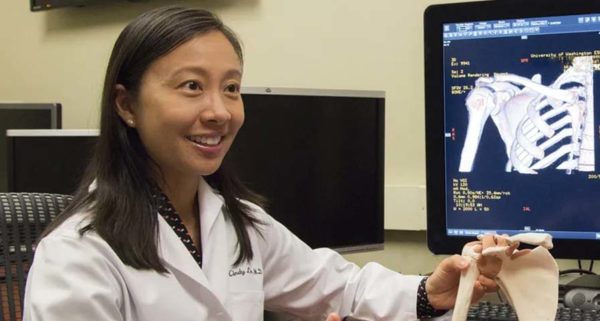Originally published Dec. 31, 2022 by The Seattle Times.
By Elise Takahama
Widespread medical efforts to prescribe more physical activity or more regularly check in on patients’ activity levels could significantly reduce the nation’s health care costs, according to a new study from the University of Washington’s School of Medicine.
The findings, published this month in the Journal of Physical Activity and Health, show that “sufficiently active” UW Medicine clinic patients who were surveyed between January 2018 and December 2020 were much less likely than inactive patients to visit a primary care doctor, go to an emergency room or be admitted to the hospital. Researchers went a step further in their analysis: If more adults in the United States were more physically active, our country’s health care costs would shrink.

“Even though physical activity is known to be so beneficial for health, it’s just sort of forgotten in the health care system,” said Dr. Cindy Lin, a UW clinical associate professor of sports and spine medicine and lead author of the paper. “A lot of treatments for chronic conditions are focused on prescribing medications, yet there’s great evidence that physical activity and lifestyle changes can make a huge difference.”
In the U.S., Lin said about 53% of adults meet national physical activity guidelines, or practice moderate exercise at least 150 minutes per week as recommended by the U.S. Department of Health and Human Sciences. Only about 23% meet guidelines for both aerobic and muscle strengthening — a figure that’s worsened during the pandemic as commute times shrank for many and lifestyles grew more sedentary, she said.
Of the nearly 24,000 patients surveyed in the UW Medicine study, those who were considered sufficiently active, about 37.4% of the group, faced about 34 fewer emergency room visits, 19 fewer hospital admissions and 38 fewer primary-care visits per 1,000 patient-years (patient-years are often used in clinical research and represent the total combined number of years all patients were followed).
Boost Student Wellness with the IHT ZONE heart rate monitor:
[contact-form-7 id=”3054″ title=”How’d you find us?”]


